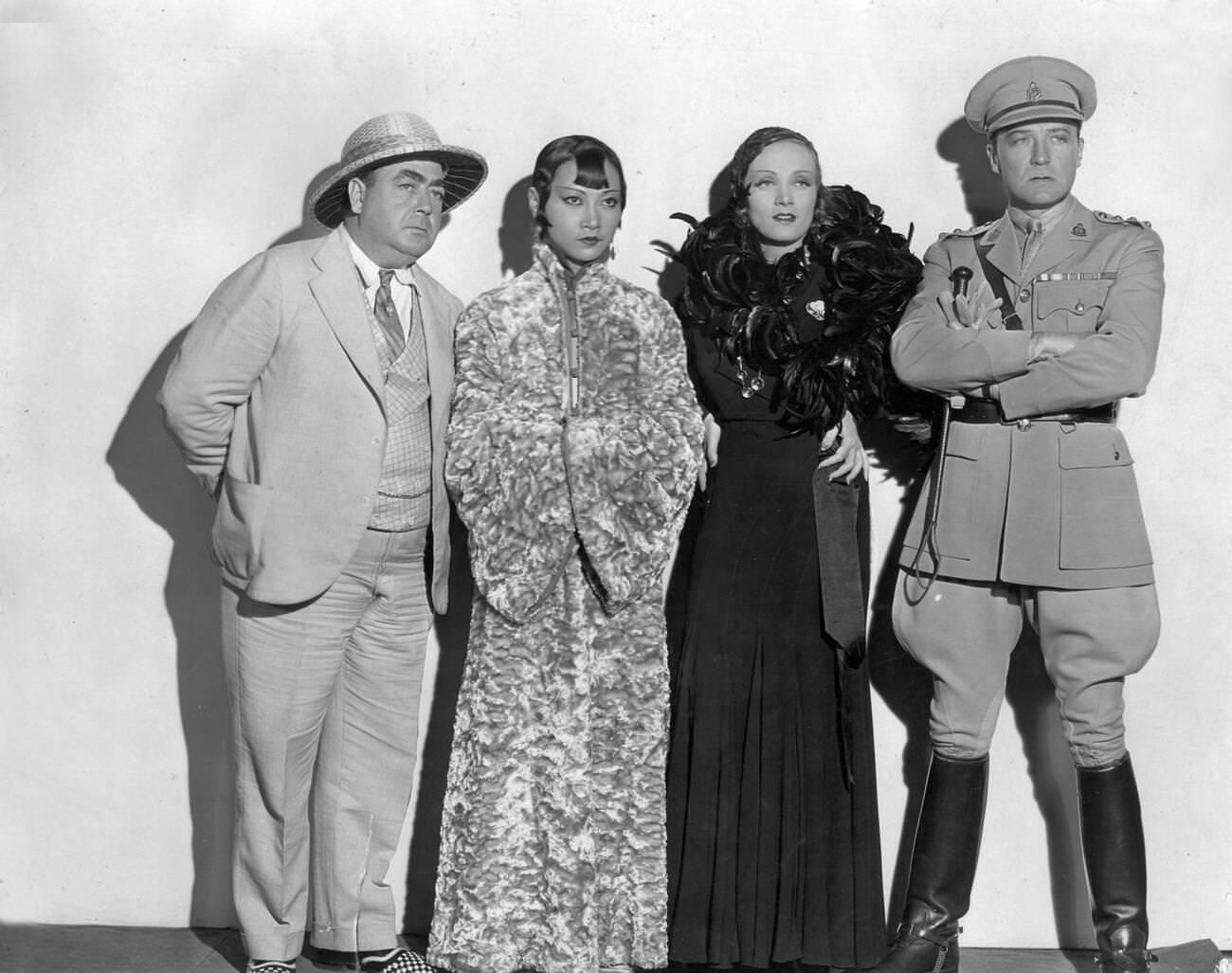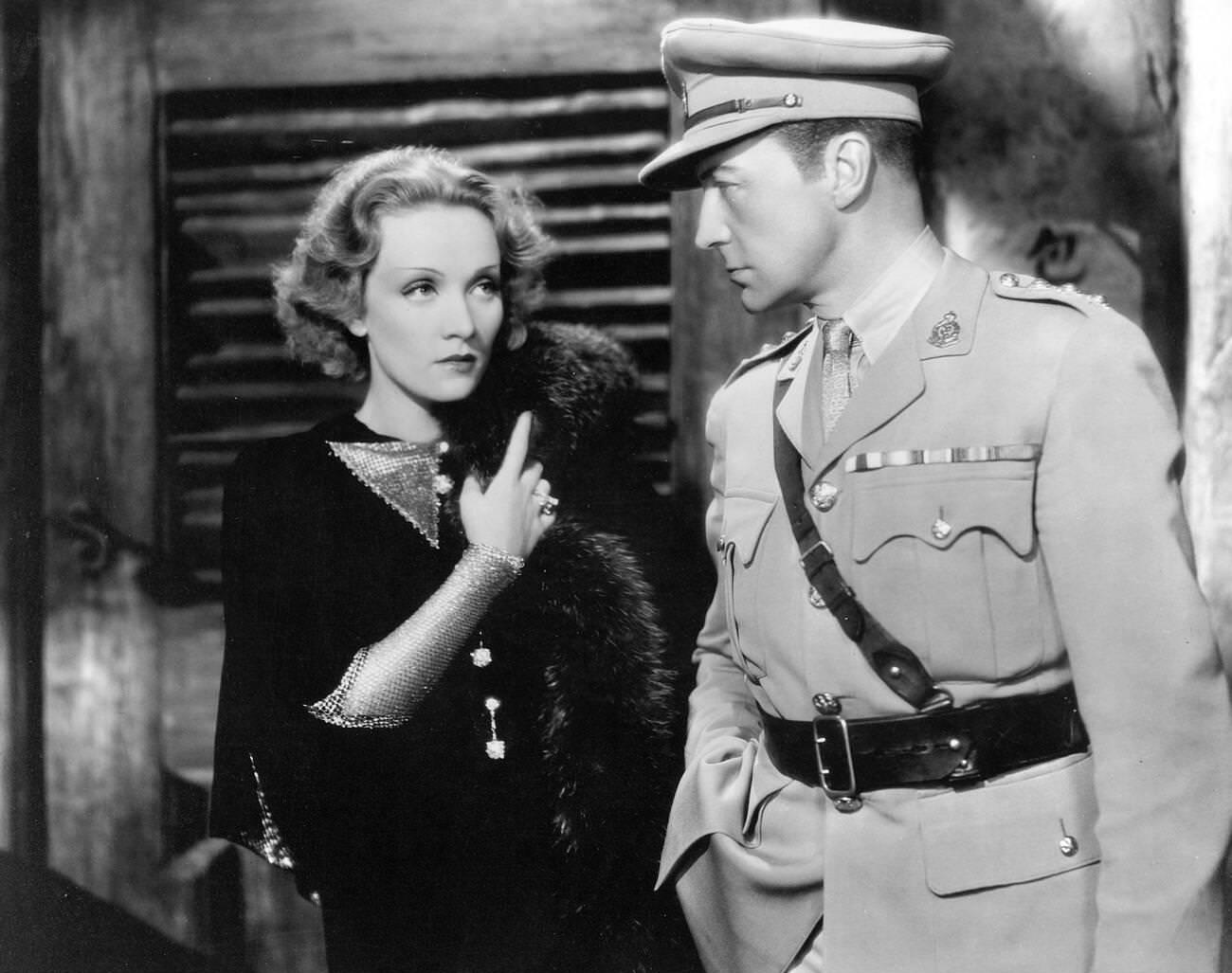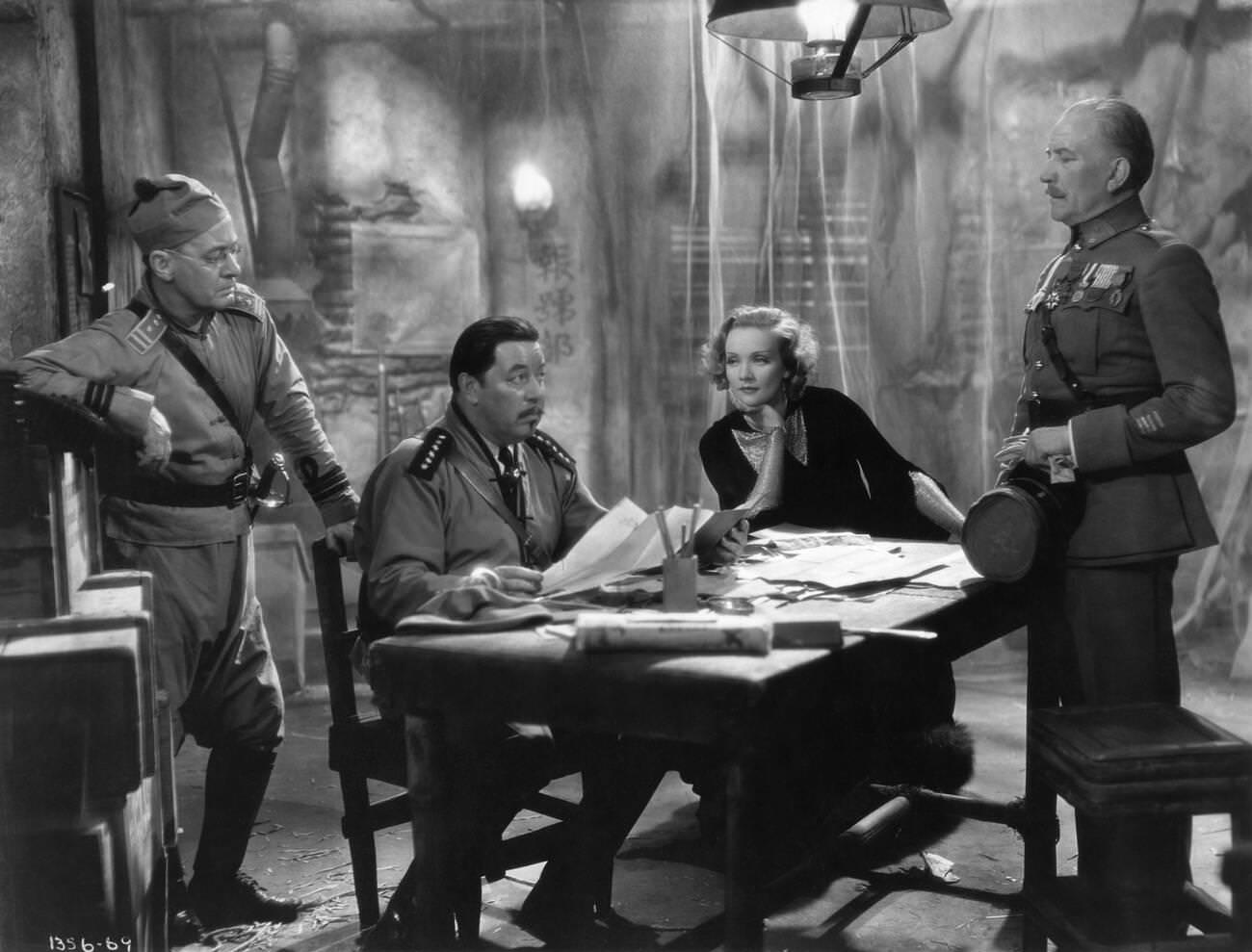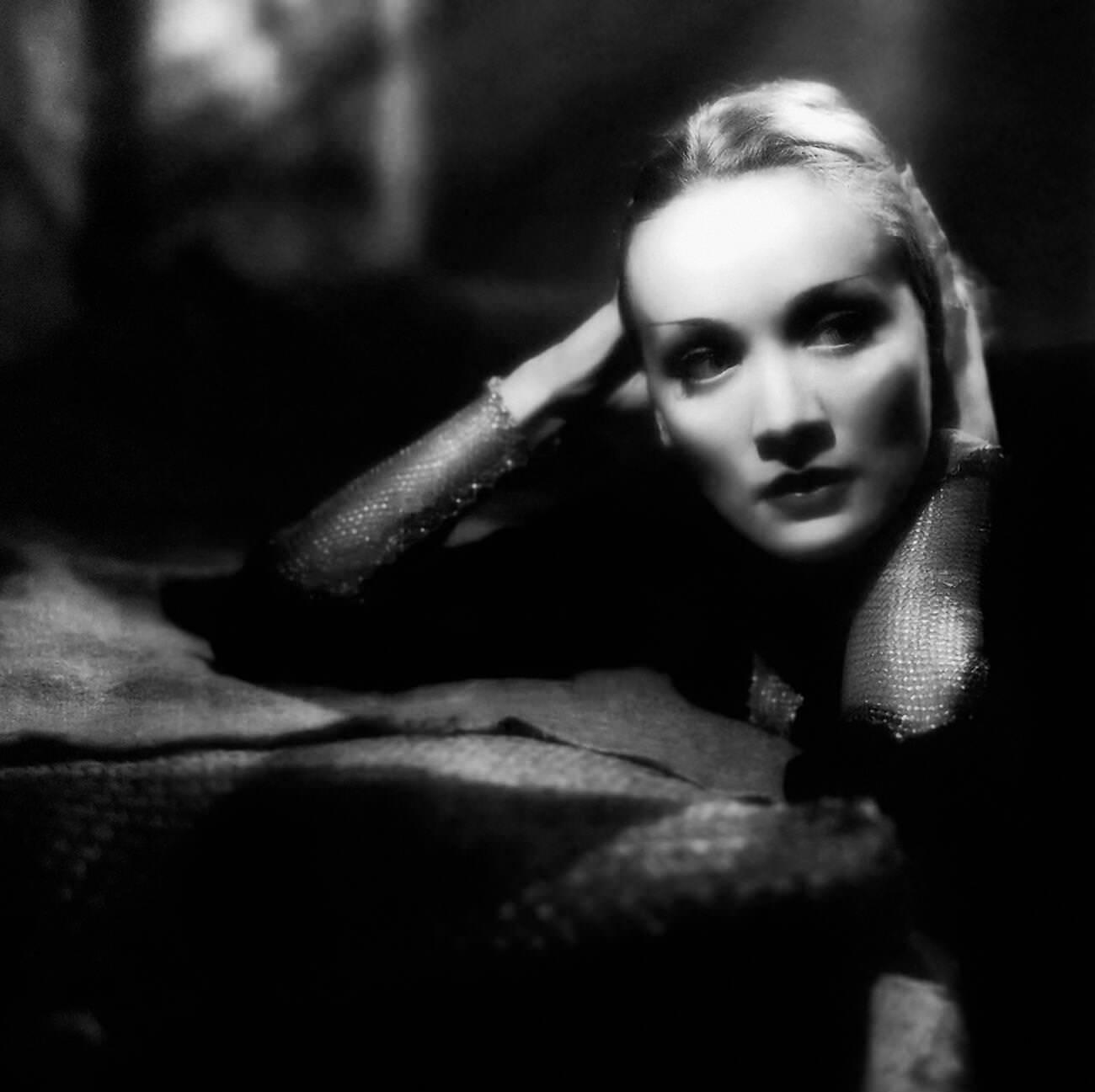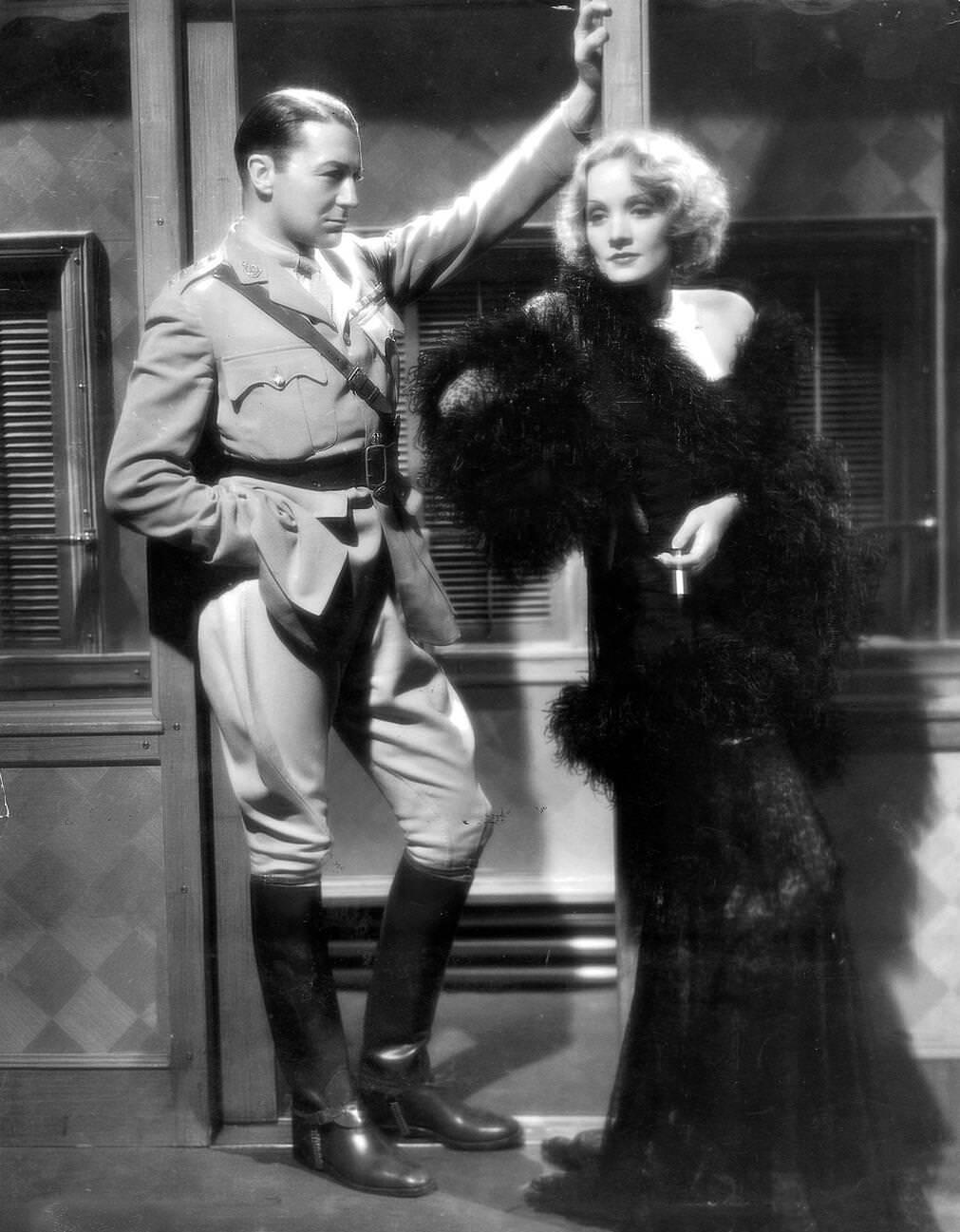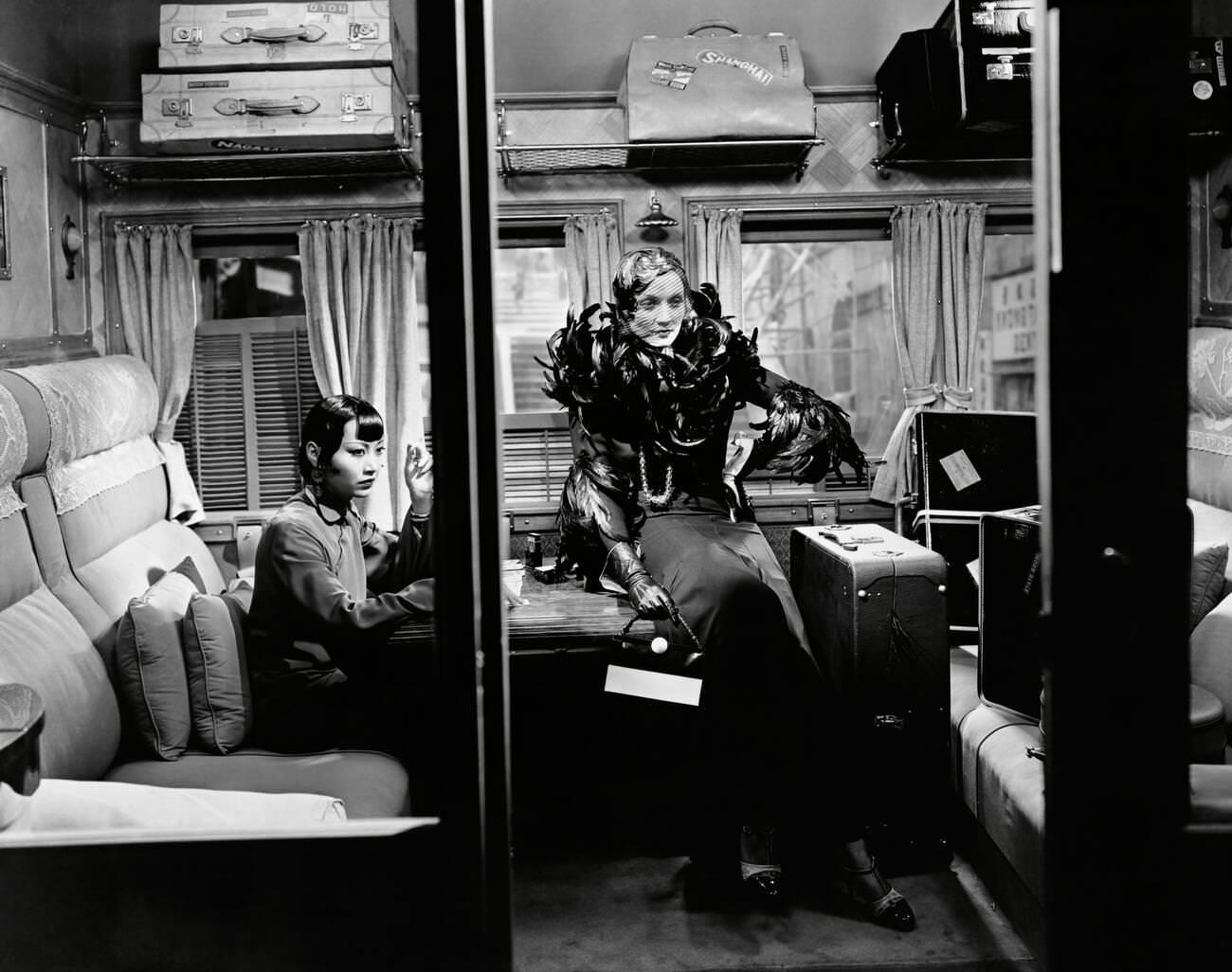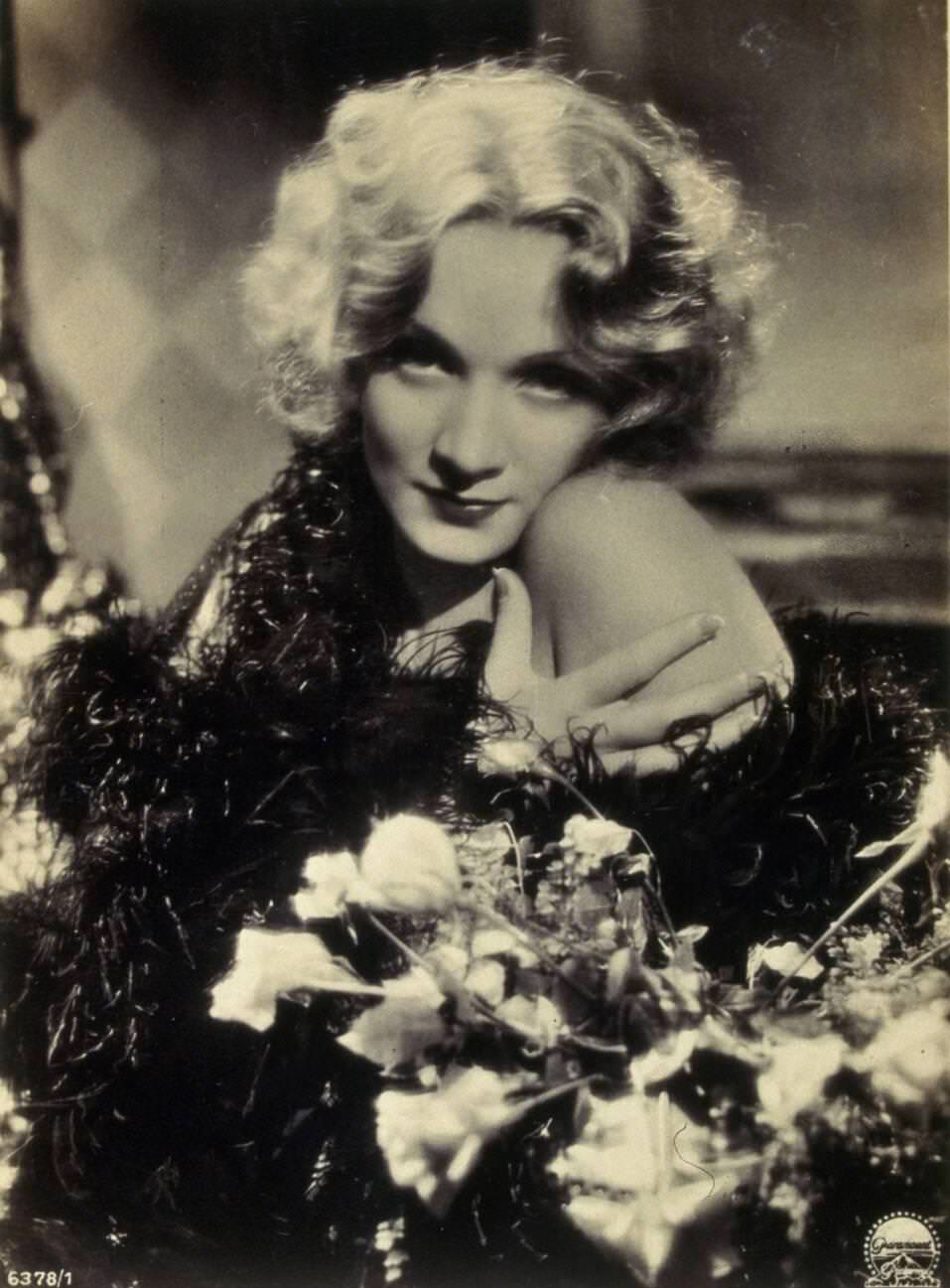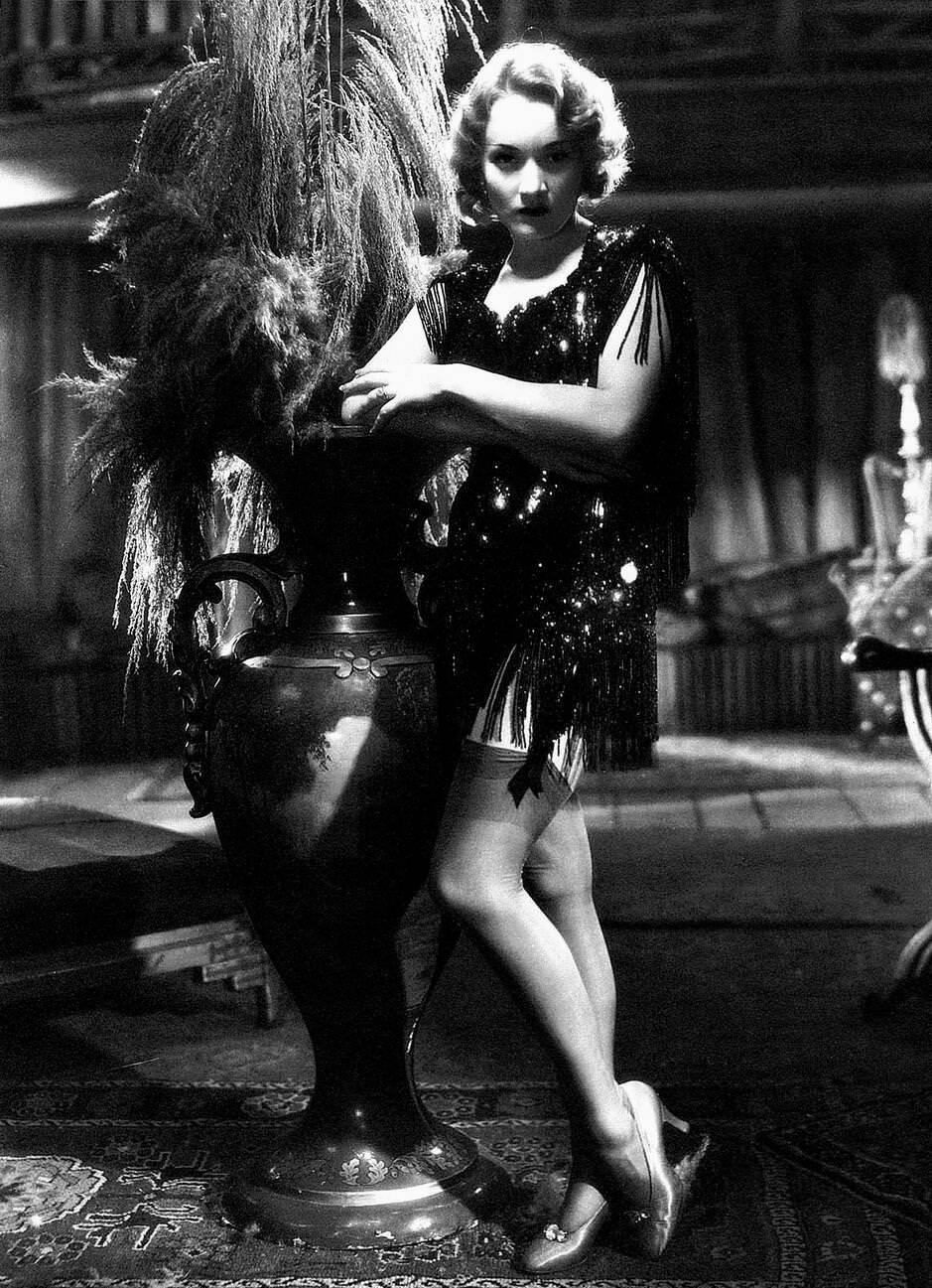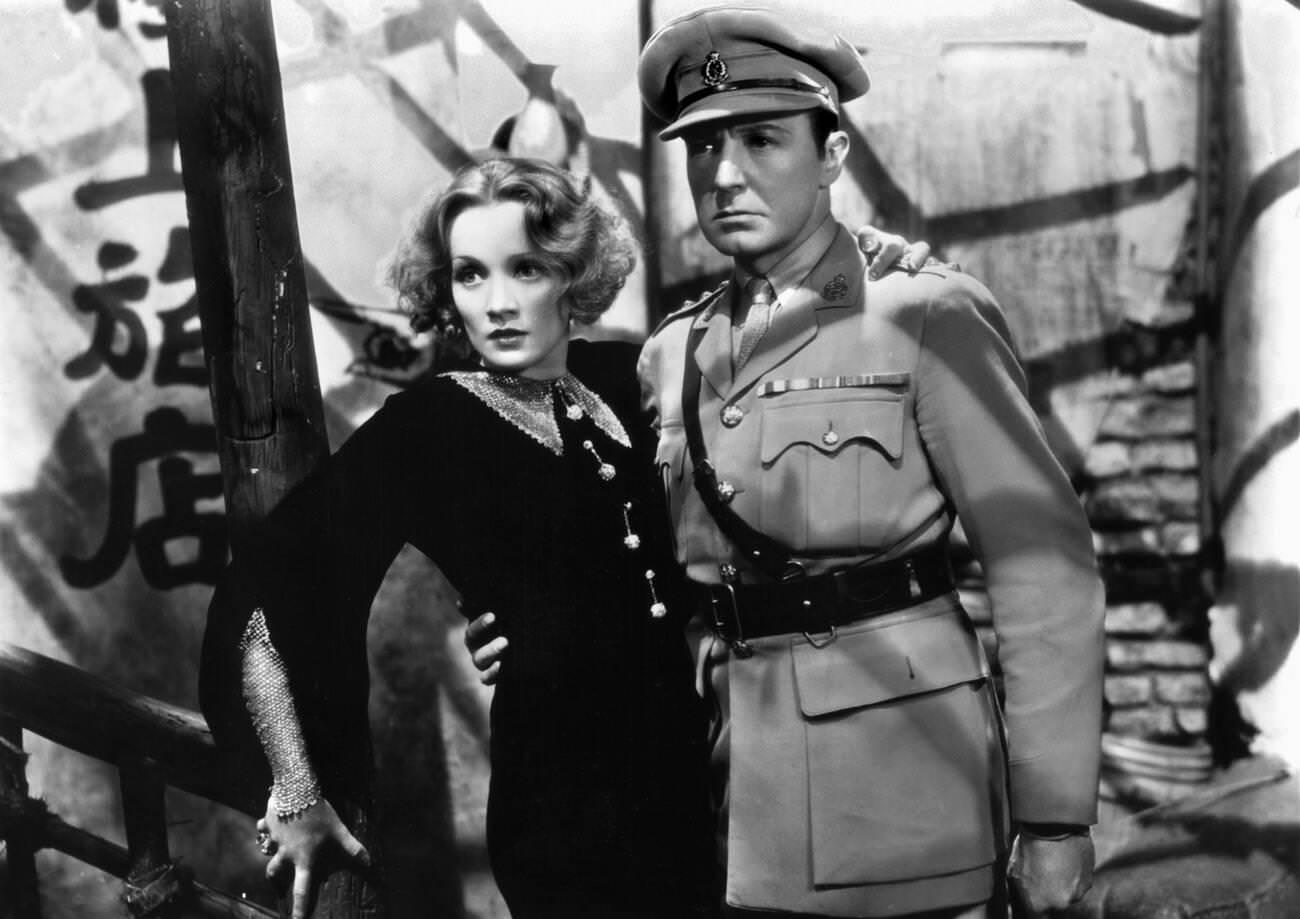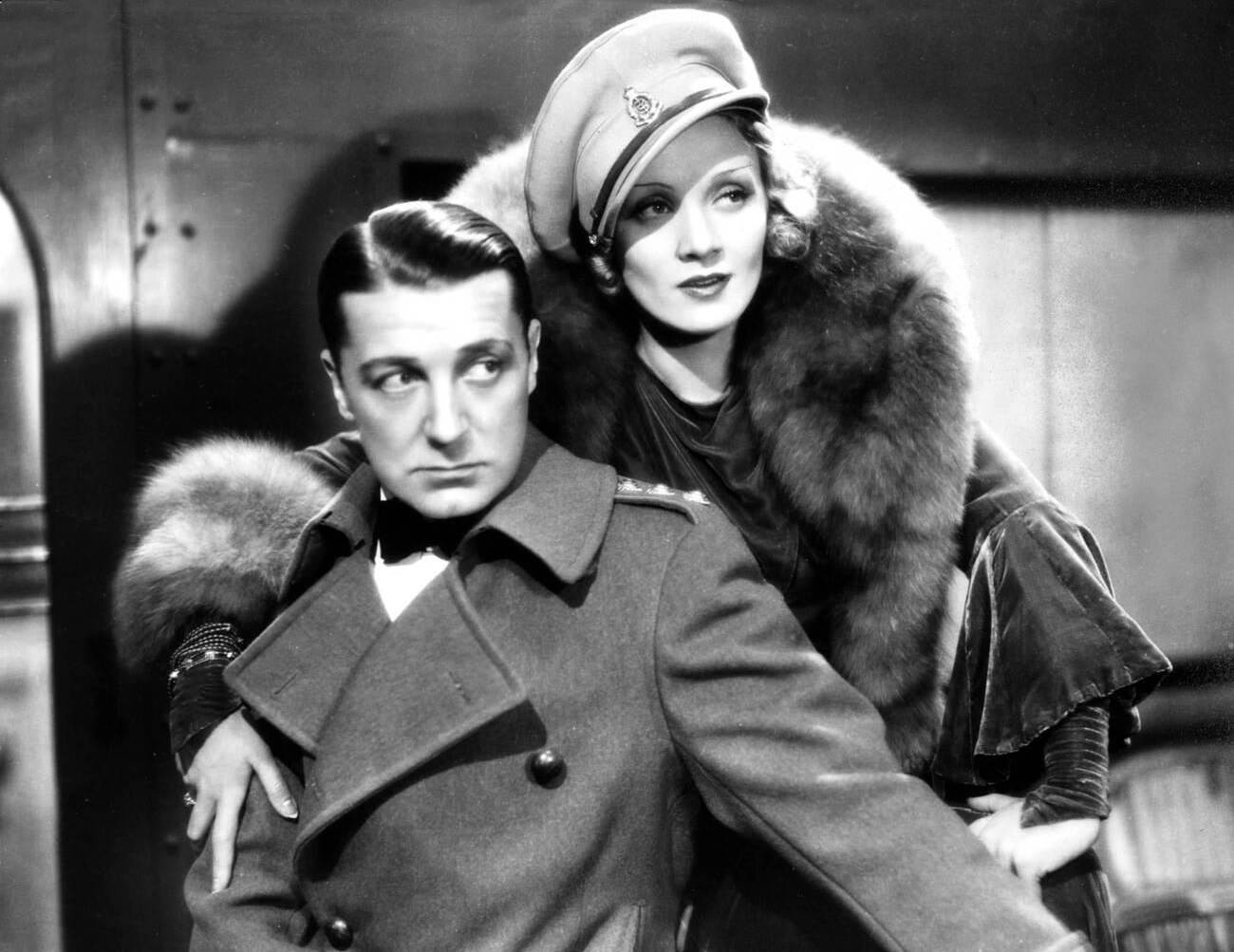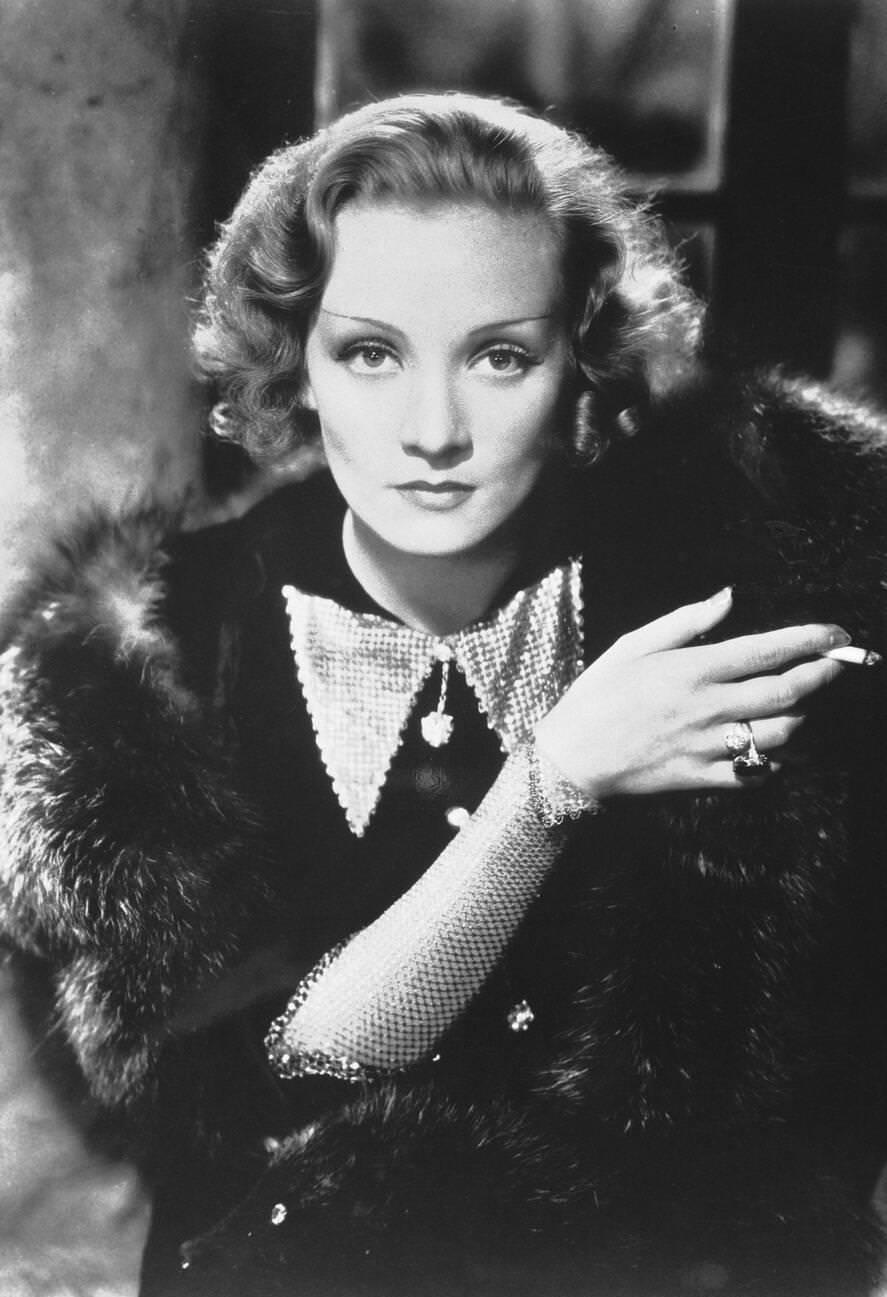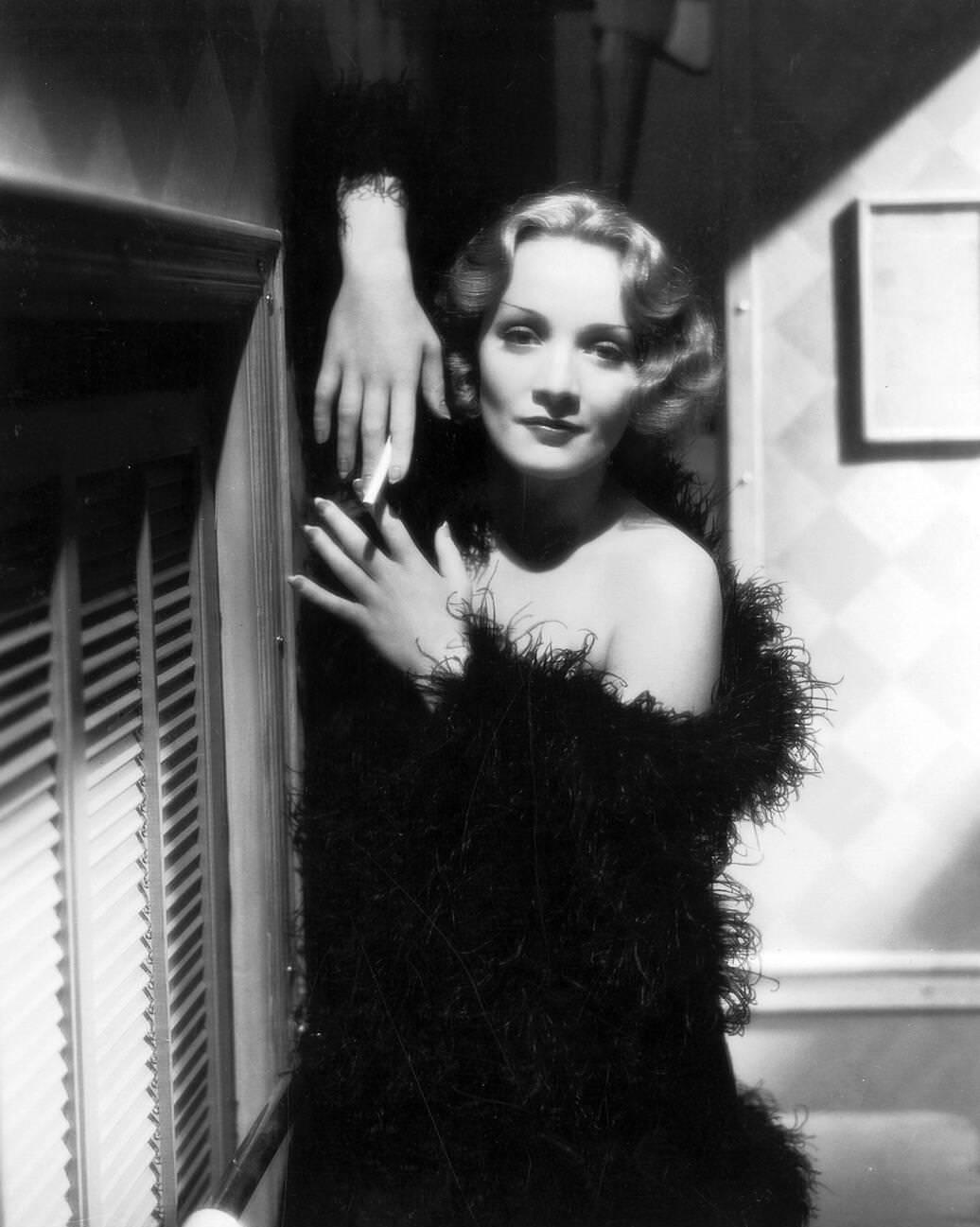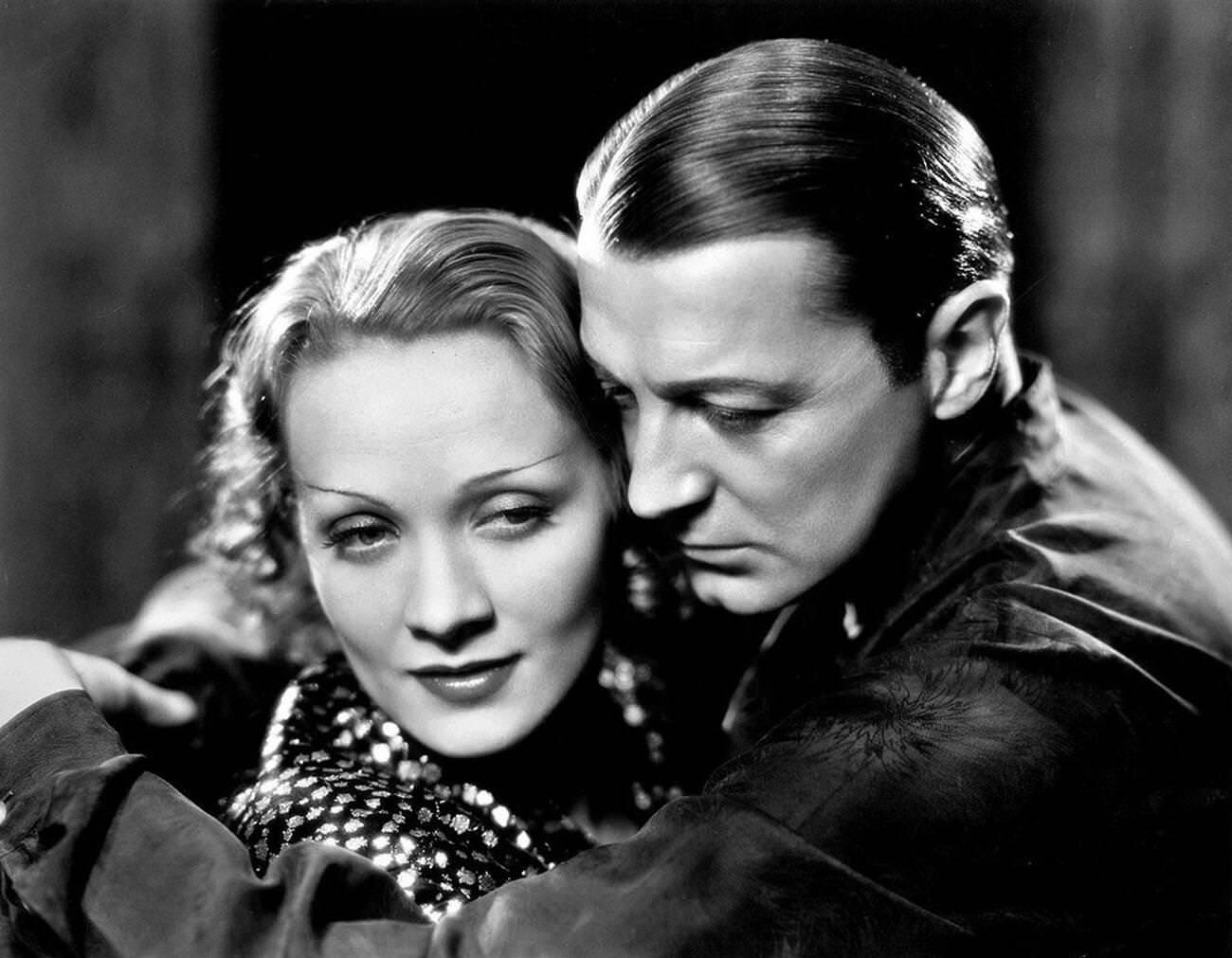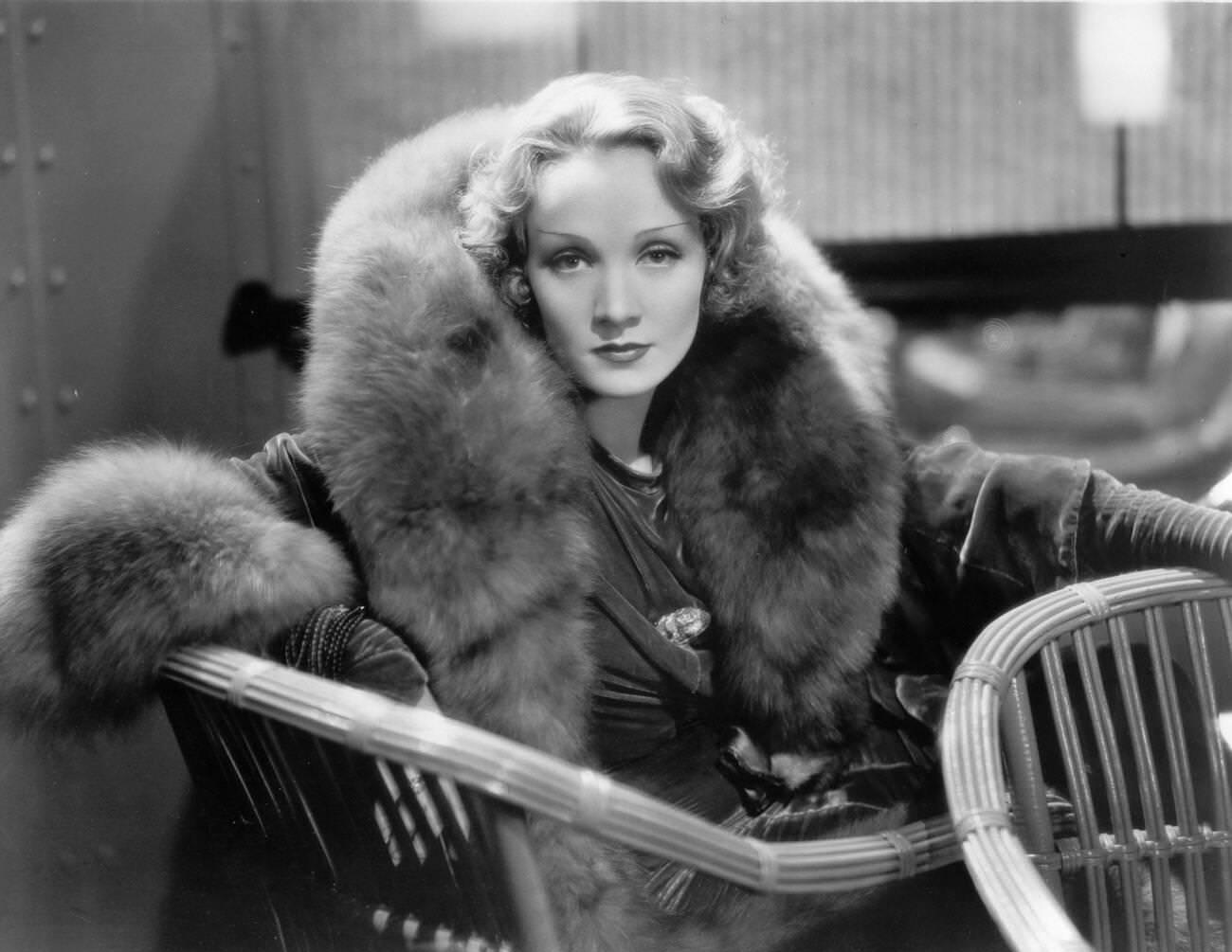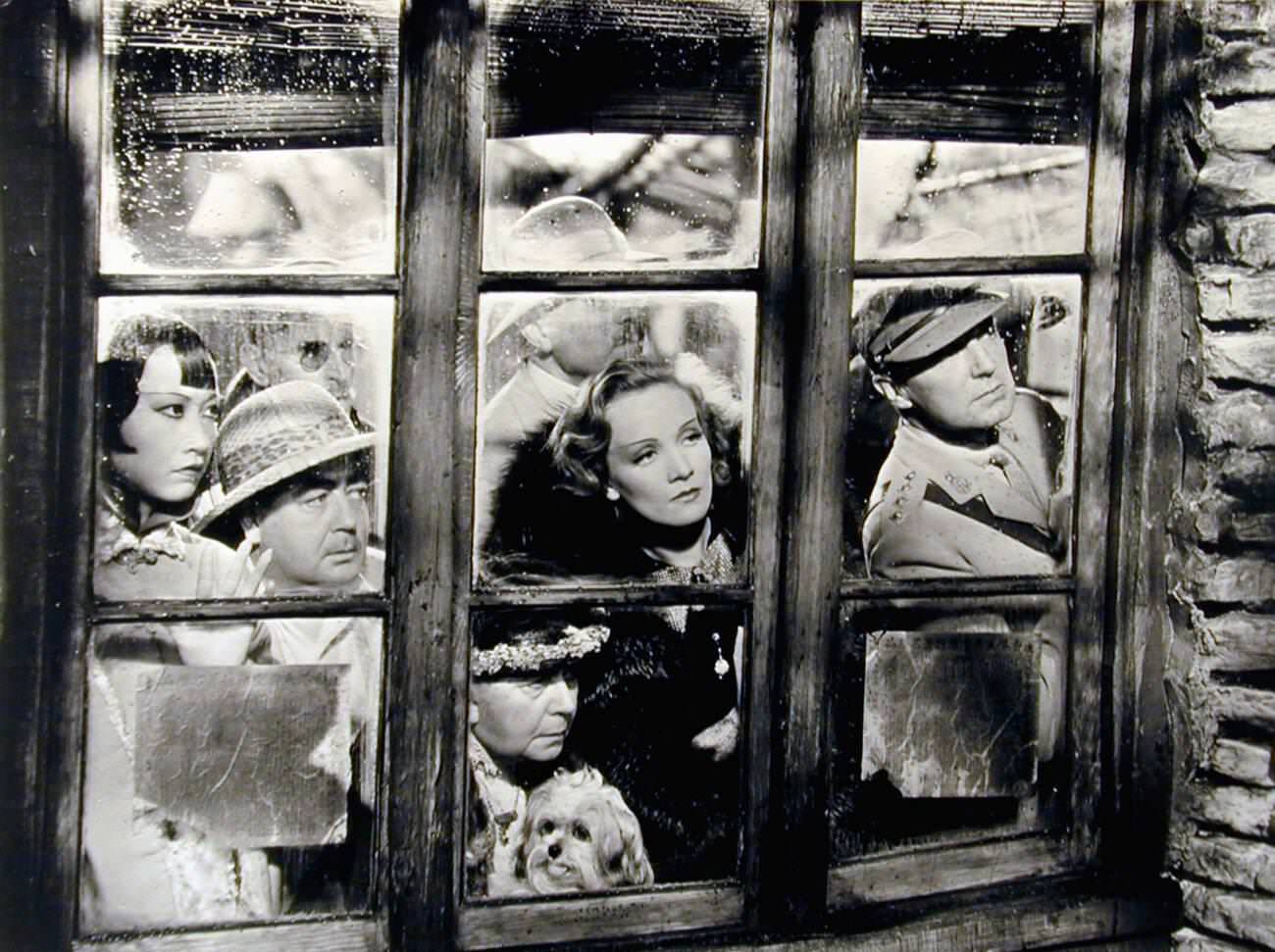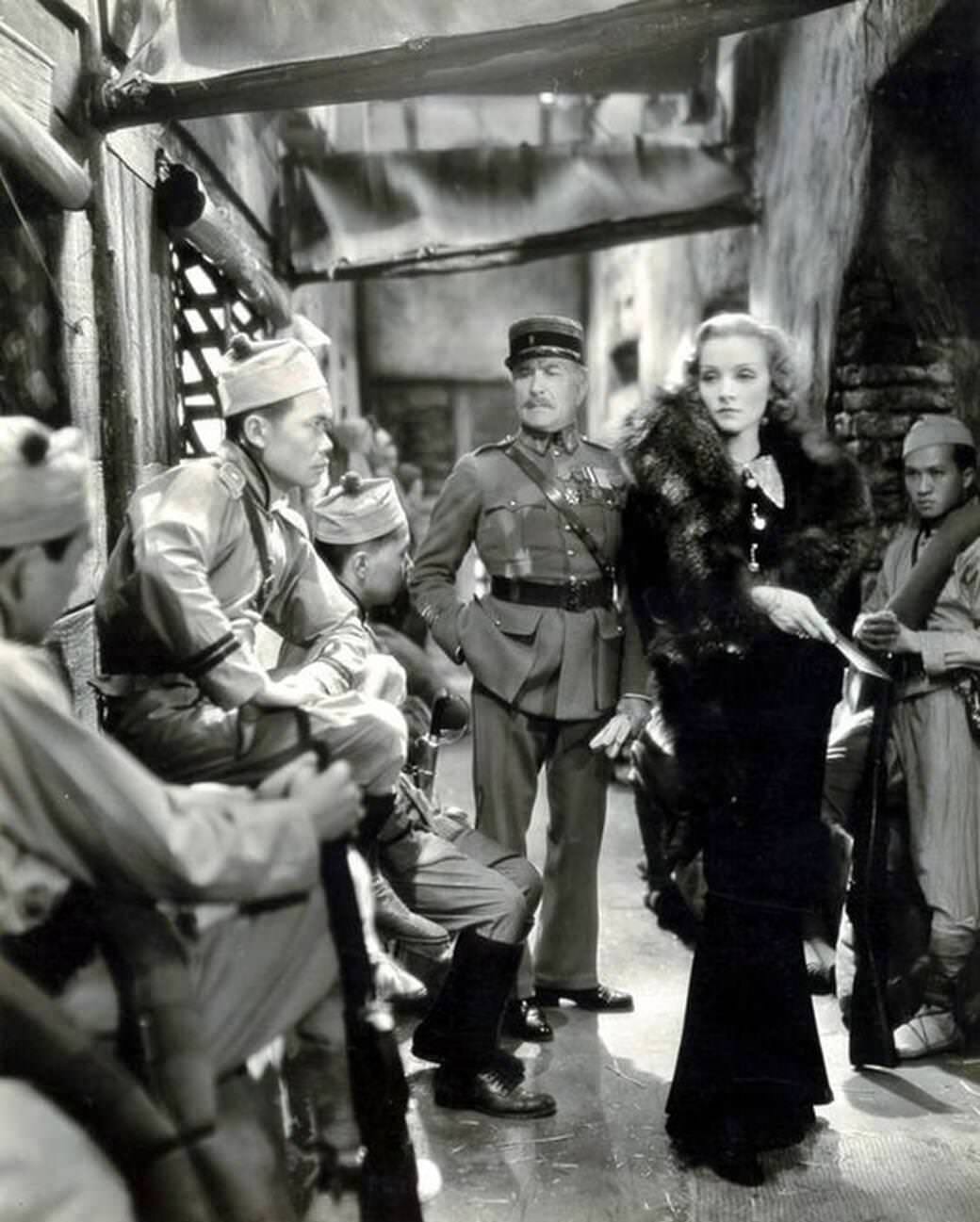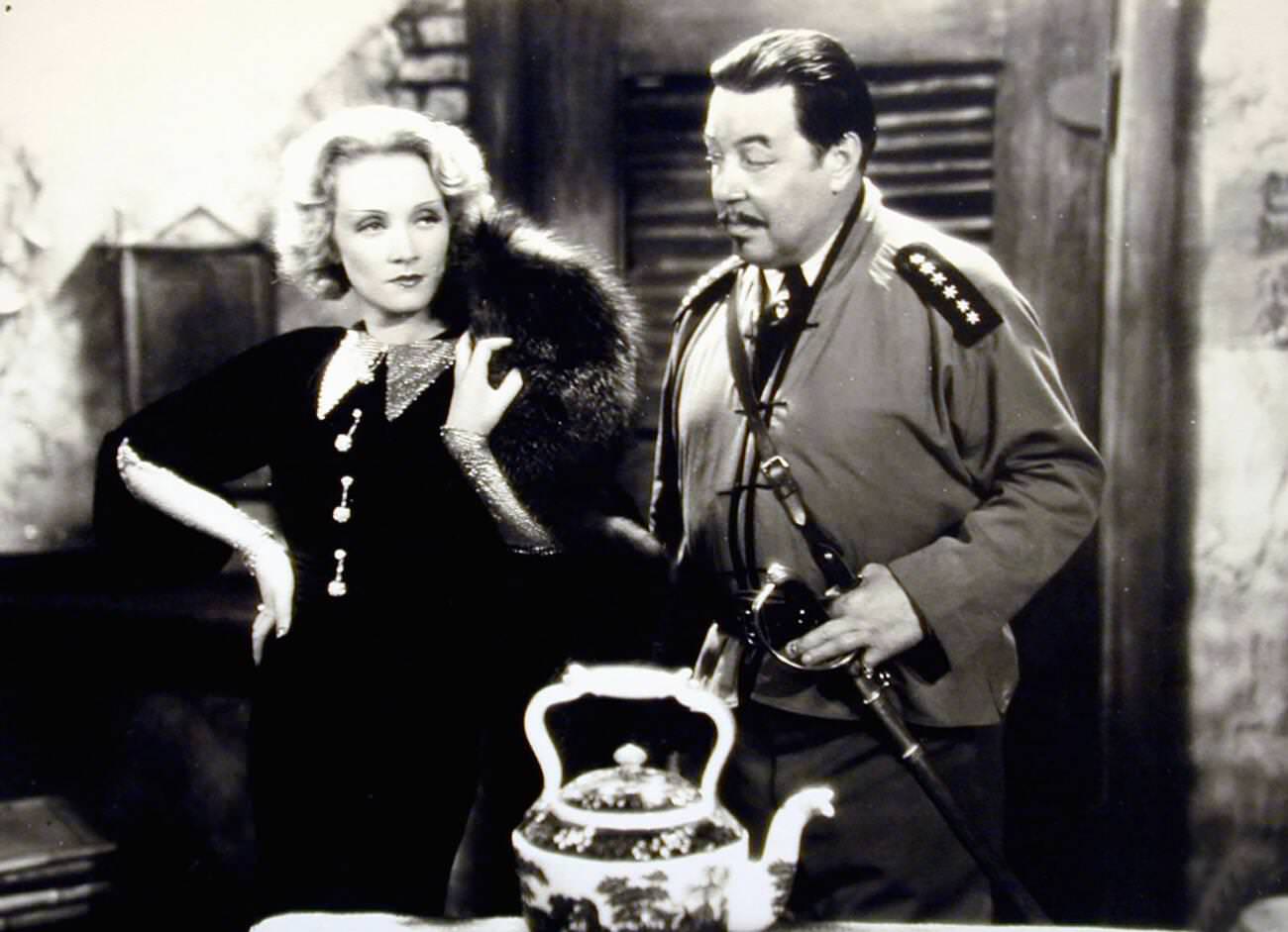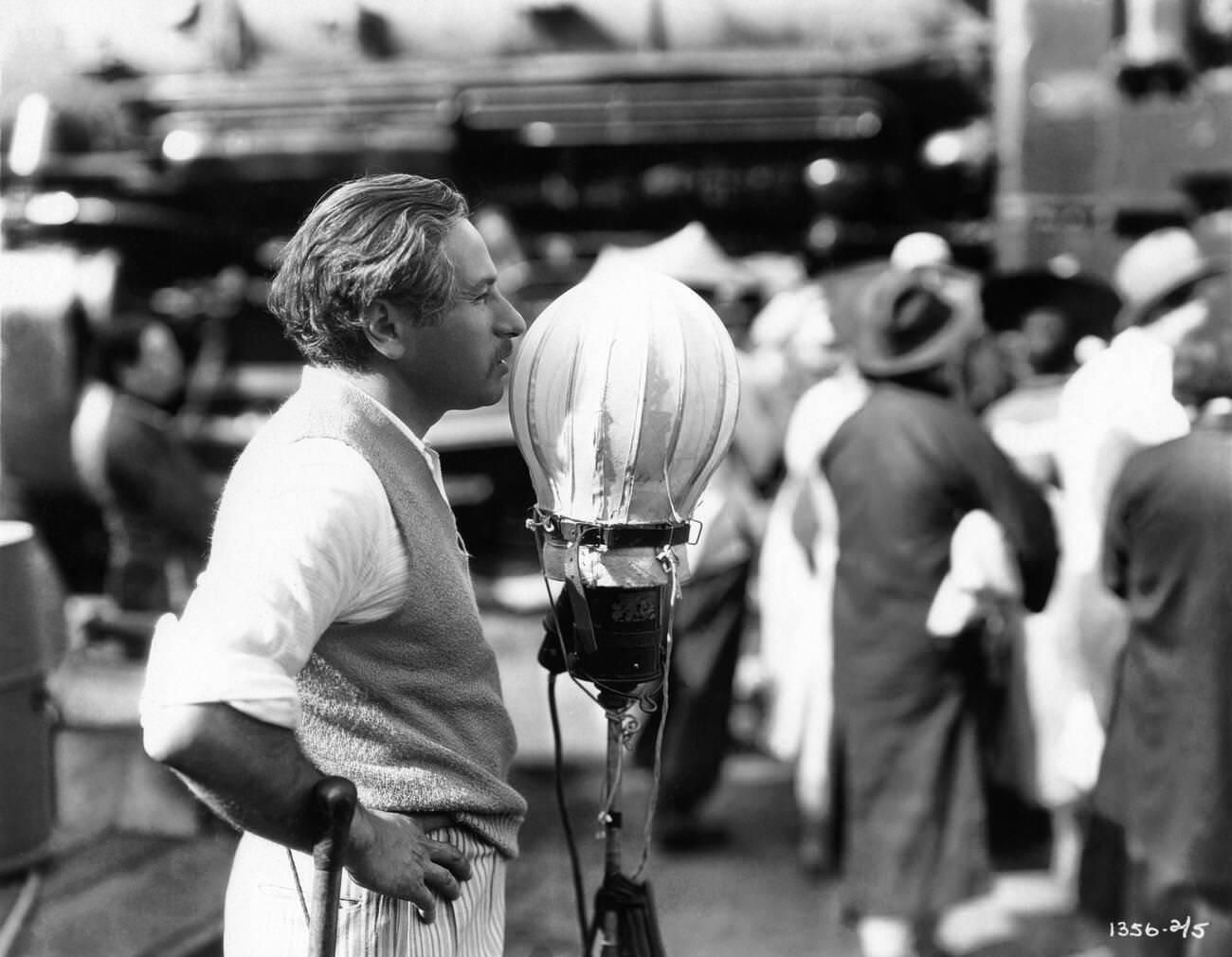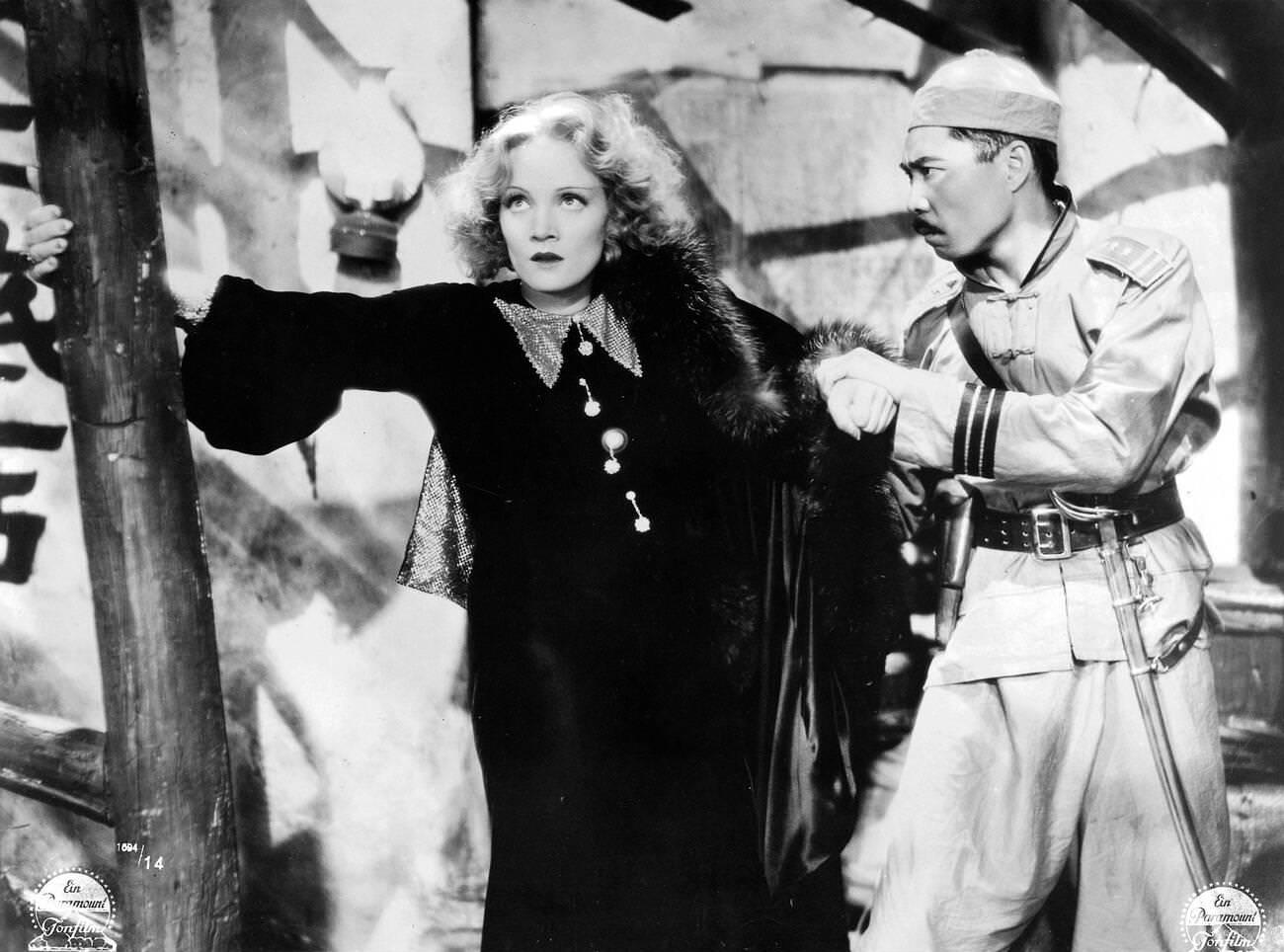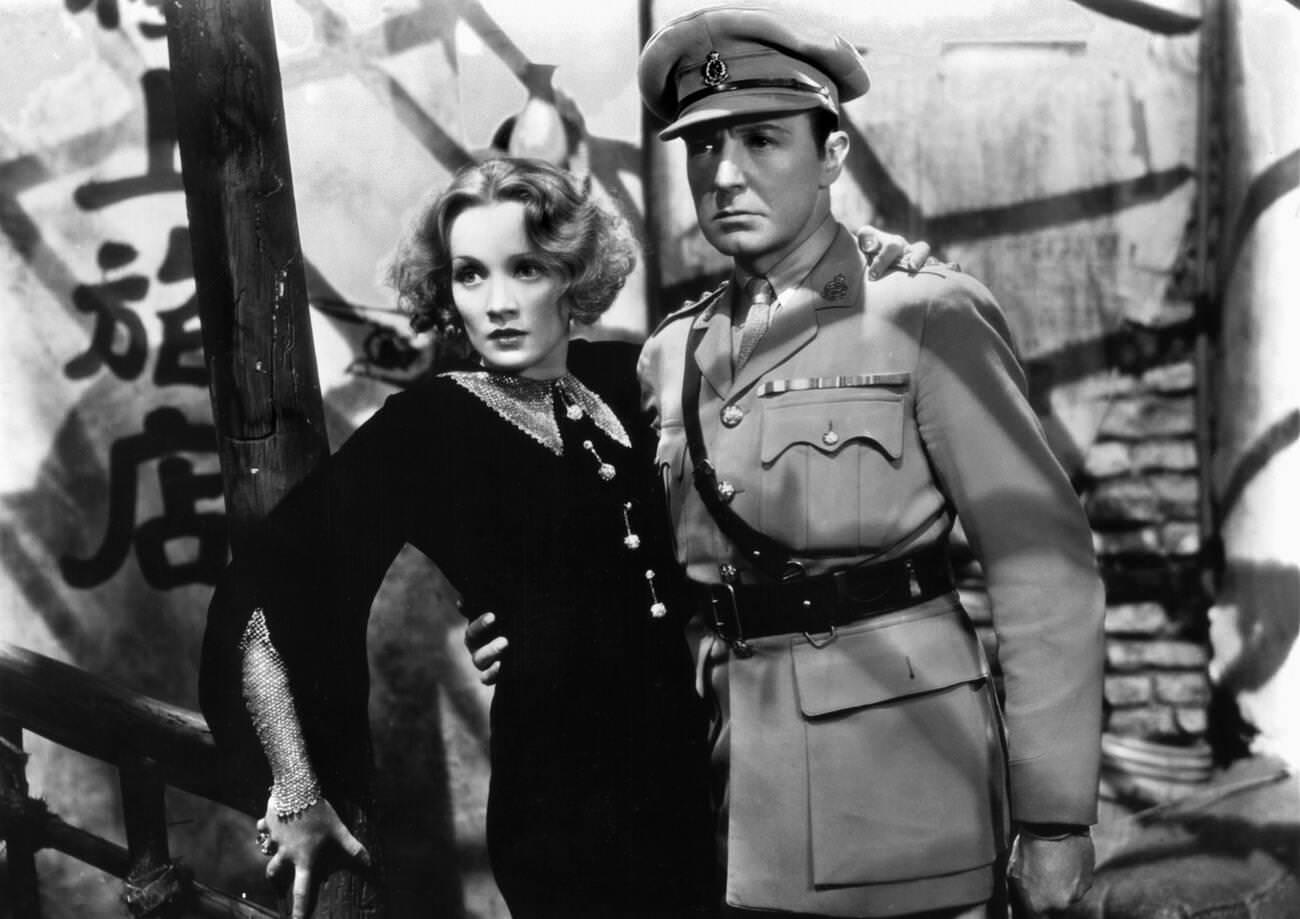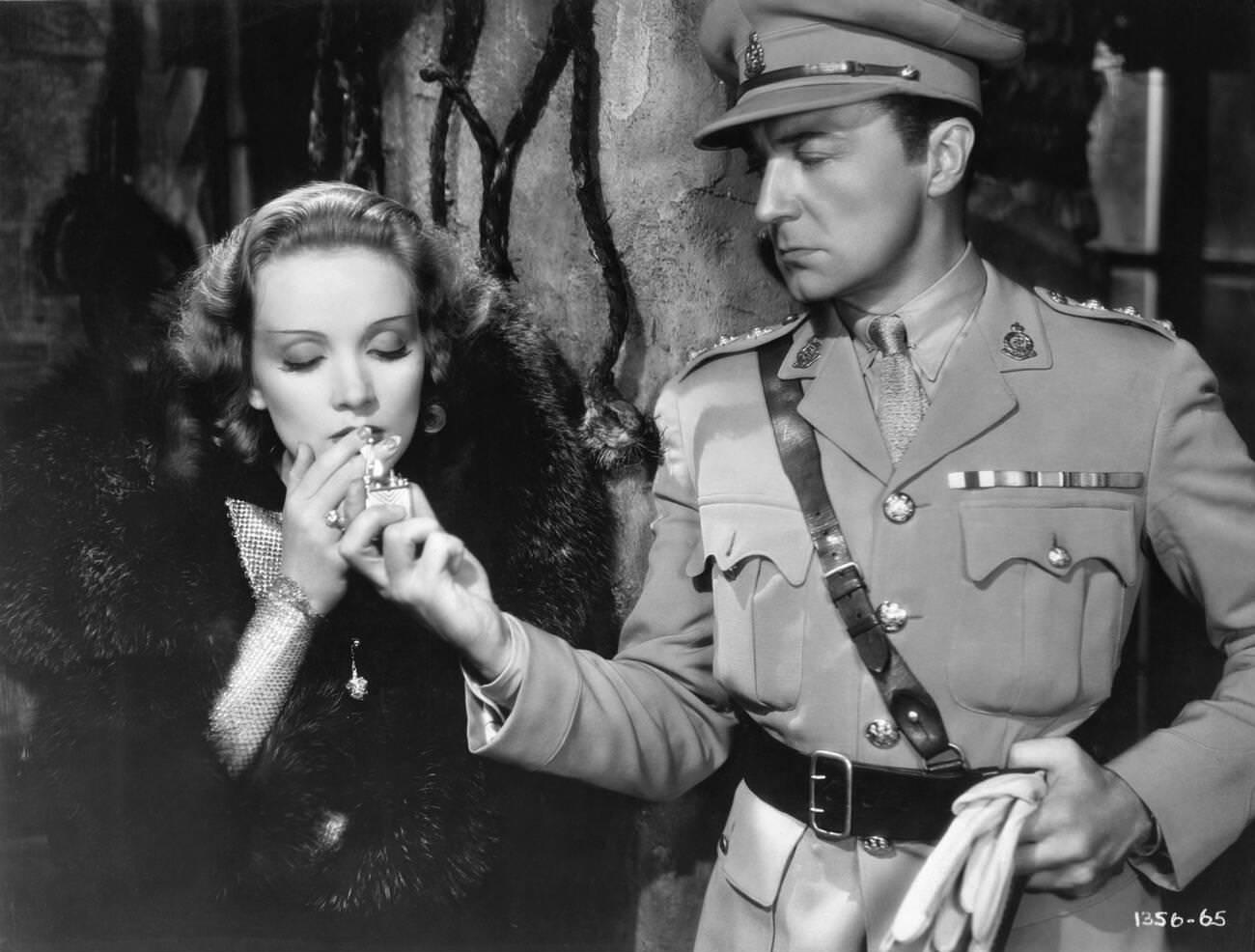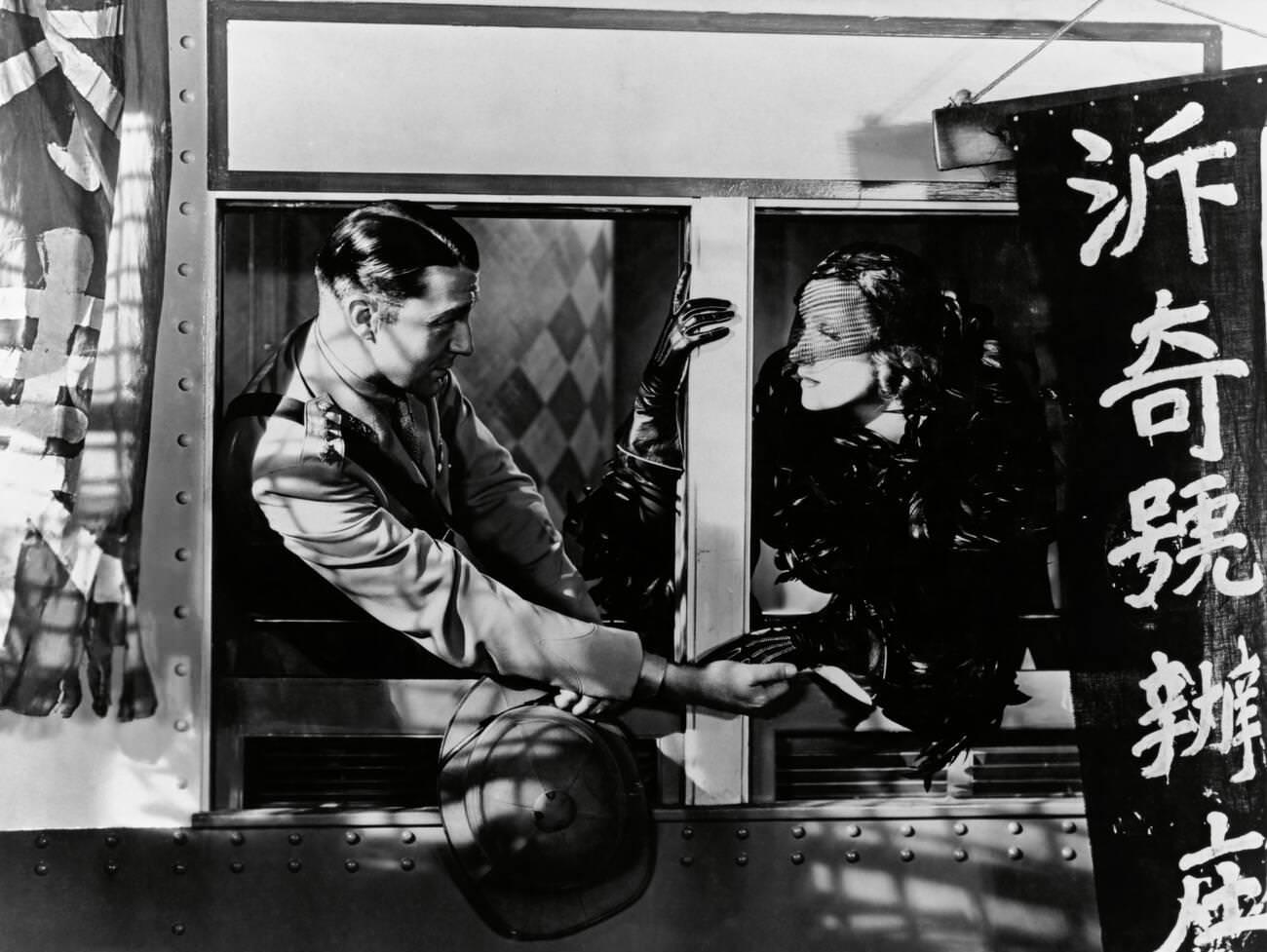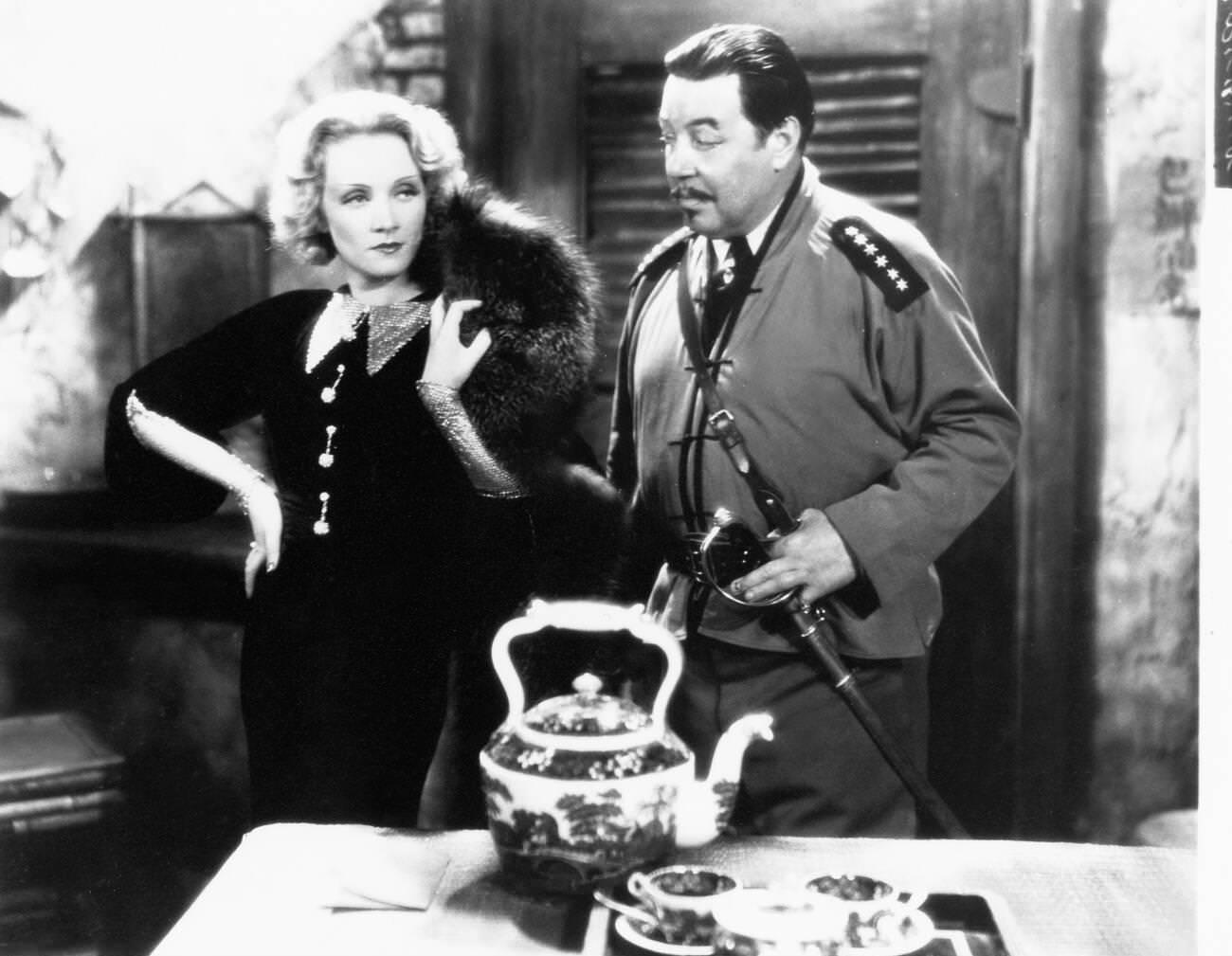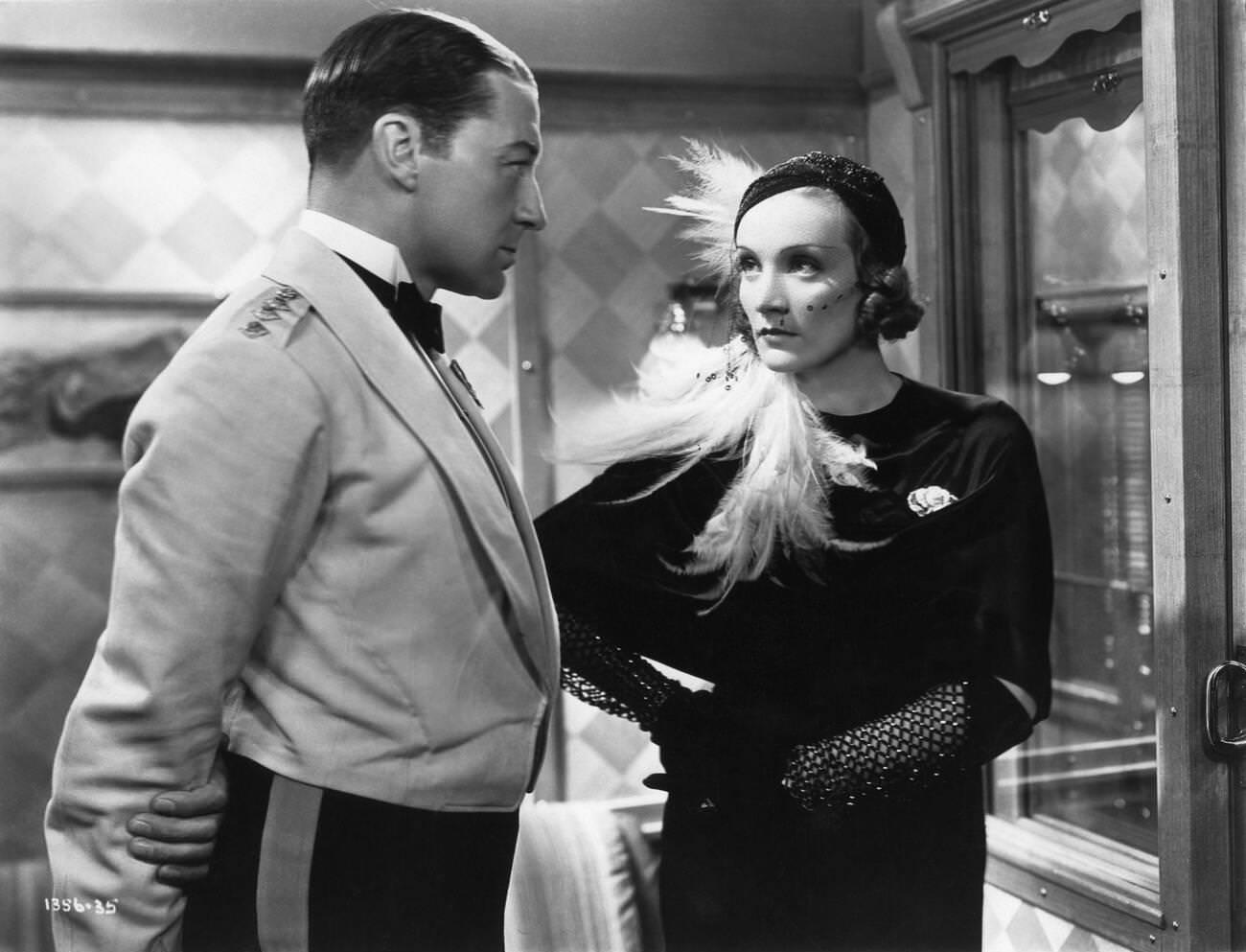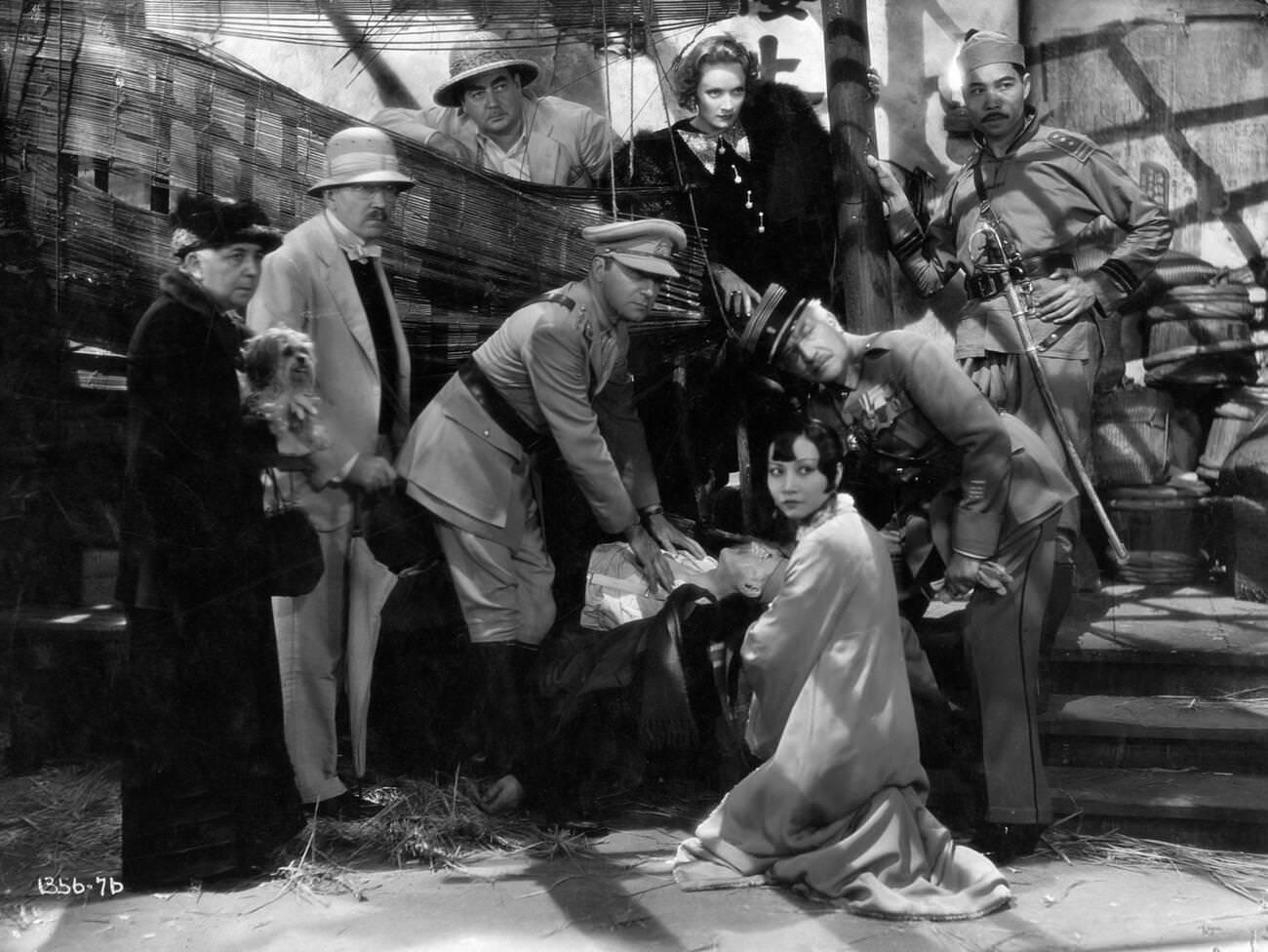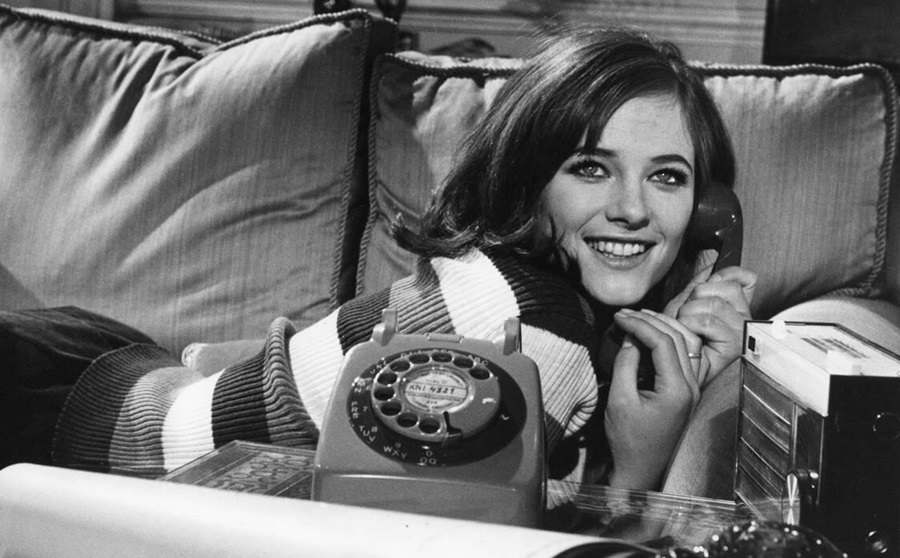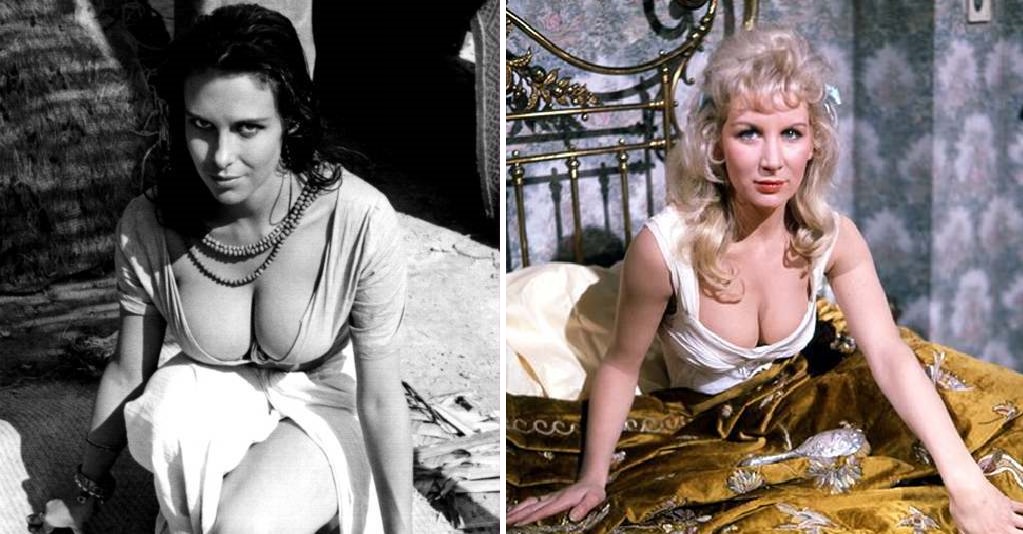Shanghai Express, directed by Josef von Sternberg and released in 1932, is a classic film that has captivated audiences for generations. The movie tells the story of a group of passengers on a train traveling from Peking to Shanghai during the Chinese Civil War. The film is a masterclass in suspense, romance, and drama, with a unique blend of Western and Eastern cultures.
The film stars Marlene Dietrich as Shanghai Lily, a beautiful and mysterious woman with a troubled past. Dietrich’s performance is mesmerizing, and her character’s complexity and depth make her one of the most fascinating female characters in cinema history. Shanghai Lily is a courtesan, a woman who has been involved with many men, but she is also a vulnerable and sensitive person who is searching for love and connection.
The story begins with Shanghai Lily boarding the train, where she meets a group of passengers, including a British army doctor, Captain Donald Harvey, played by Clive Brook. Harvey is a stuffy and proper Englishman who is initially disapproving of Shanghai Lily’s reputation, but as the journey progresses, he becomes increasingly drawn to her..
Read more
As the train travels through the war-torn countryside, the passengers face numerous challenges, including bandits, soldiers, and treacherous terrain. The film’s tension builds as the passengers are forced to confront their own mortality and the harsh realities of war. Shanghai Lily, with her experience and resourcefulness, becomes a leader among the passengers, and her bravery and selflessness inspire the others to work together to survive.
One of the most striking aspects of Shanghai Express is its cinematography. The film’s black-and-white images are stunning, with intricate shadows and lighting that create a moody and atmospheric visual style. The camerawork is innovative, with a range of techniques, including close-ups, long shots, and tracking shots, that add to the film’s tension and drama.
The film’s themes of love, sacrifice, and redemption are timeless and universal. Shanghai Lily’s story is a powerful exploration of the human condition, and her character’s struggles and triumphs are deeply moving. The film’s portrayal of the Chinese Civil War is also significant, highlighting the brutality and chaos of conflict and the resilience of the human spirit.
Shanghai Express was a critical and commercial success upon its release, and it cemented Marlene Dietrich’s status as a Hollywood star. The film’s influence can be seen in many later movies, including the work of directors such as Alfred Hitchcock and Billy Wilder. Today, Shanghai Express remains a beloved classic, a testament to the enduring power of cinema to captivate and inspire audiences.
The film’s script, written by Jules Furthman and Harry Hervey, is a masterpiece of storytelling. The dialogue is witty and engaging, with a range of characters that are well-developed and complex. The story is full of twists and turns, keeping the audience on the edge of their seats as the passengers face one challenge after another.
Shanghai Express is a film that rewards multiple viewings. Its themes and characters are rich and complex, and the film’s visual style is a work of art in itself. Whether you’re a fan of classic cinema, a student of film history, or simply someone who loves a good story, Shanghai Express is a must-see movie that will captivate and inspire you.
The film’s score, composed by W. Franke Harling and Rudolph G. Kopp, is a beautiful complement to the on-screen action. The music is lush and evocative, with a range of themes that enhance the film’s emotional impact. The score is a perfect example of the art of film music, adding depth and complexity to the movie without overpowering the dialogue or action.


